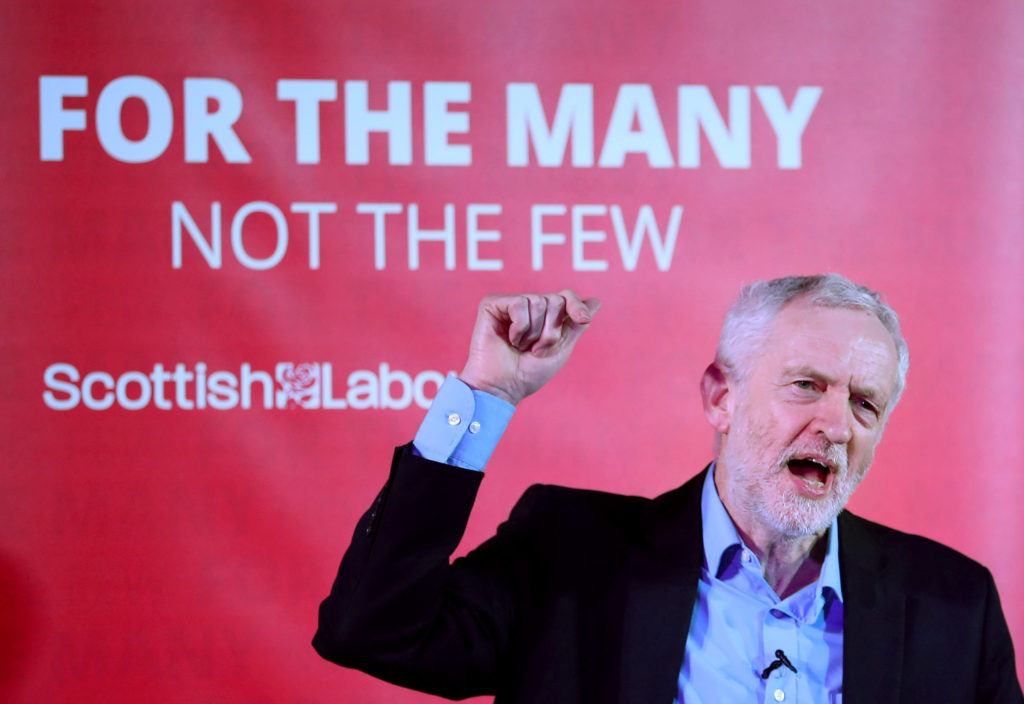Image: PA
“Since the decline of the industrial proletariat, and more precipitously with the end of the Soviet Union, the left in the West has been shorn of its agent, its project, and even its story.”
I recently stumbled across the above paragraph in an essay1 by the late historian and critic Tony Judt. The essay was written in September 1997, just four months on from the high-water mark of New Labour and Tony Blair’s first election victory. Yet two decades later it explains the left’s predicament rather well. Almost everywhere in Europe the centre-left is in crisis. In the year 2000 social democrats or socialists were in power in 10 out of the 15 countries that made up the European Union of the time2, whereas today only a handful of recognisably left-leaning governments hold power.
Even when things look more favourable from the outside a closer inspection reveals something less encouraging. In Germany the Social Democratic Party may be in government – but it is propping up Angela Merkel’s Christian Democrat administration – and has slipped behind the hard-right Alternative for Germany (AFD) in the polls. In the Czech Republic an ostensibly social democratic President, Miloš Zeman, arguably has more in common with populist leaders like Viktor Orbán than with the ‘third way’ politicians who dominated the European scene until recently. In Portugal things look a little more encouraging for the left, but even there the Socialist Party has had to forge an alliance with the Communists and the Greens to get into power.
For those who had failed to grasp the scale of the crisis afflicting Europe’s centre-left, recent elections in Italy and France ought to have driven the situation home. In 2017 the French Socialist Party (PS) failed to even make it through to the second round of voting. Meanwhile the Italian election of 4 March this year saw Matteo Renzi’s Democratic Party fall to its worst result since the end of the Second World War. Just prior to that the Labour Party in the Netherlands lost three-quarters of all its parliamentary seats.
One of the reasons Jeremy Corbyn continues to inspire such fierce loyalty among his followers is his apparent success (Labour won 40% of the vote at the 2017 General Election) against this inauspicious backdrop of decline. As the tainted compromisers of the Blair era are wiped-out across Europe and beyond, Corbyn – a man who stood firm when mainstream politics was leaving him behind in the 80s and 90s – is having his moment in the sun. His three-decades long existence at a tangent from New Labour’s reconciliation with market capitalism is finally paying off. The reason for this is that Corbyn has offered voters something at once distinctive and more daring than his vacillating predecessors. This carries obvious attractions at a time of widespread and growing discontent with the status quo.
Indeed, few assumptions look as improvident in hindsight as the notion that voters were increasingly disinclined to turn out at elections during the consensus years because they were satisfied with their prosperous lot. I spent much of 2016 travelling around Britain researching a book and it quickly became apparent that all was not well. This was especially true in parts of the country that had once been thriving centres of industry and manufacturing. It was here that I found the remnants of a once proud working class floating in and out of precarious employment or whittling away time at home or in the pub. “I know a lot of boys who worked in the mines…some of them [are] drinking, there’s one or two stays in the house, you don’t see them, they don’t even wash” – this was relayed to me by a former collier whom I met showing visitors around the South Wales Miners’ Museum in Port Talbot. The faded trade union flags and dusty memorabilia that decorated the place offered a forlorn reminder of a vanished world.

 Main Edition
Main Edition US
US FR
FR







Join the discussion
Join like minded readers that support our journalism by becoming a paid subscriber
To join the discussion in the comments, become a paid subscriber.
Join like minded readers that support our journalism, read unlimited articles and enjoy other subscriber-only benefits.
Subscribe